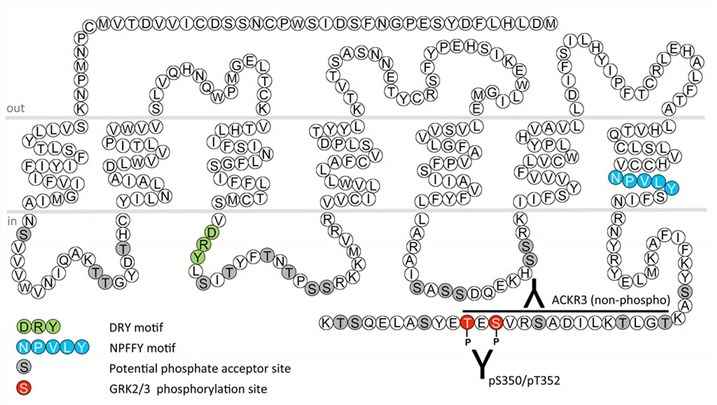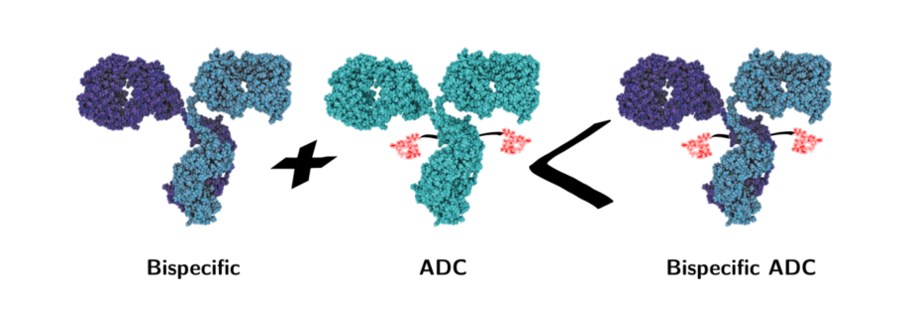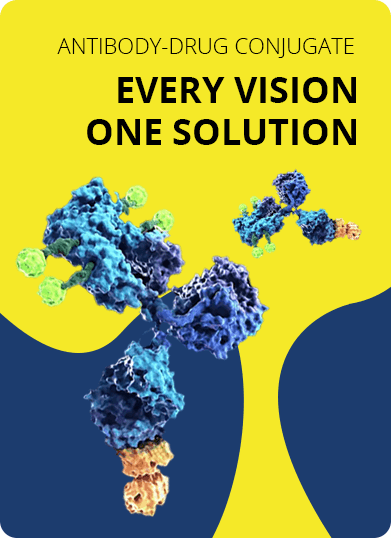- Home
- UTC Development
- Bispecific ADC Development
- Biparatopic Receptor based Bispecific ADC Development
- Biparatopic CRCX7-targeted Bispecific ADC Development
Biparatopic CRCX7-targeted Bispecific ADC Development Service
Various chemokine receptors are expressed on malignant tumors and have been associated with tumor progression and metastasis. Preclinical research supports that CXC chemokine receptor 7 (CXCR7) is a valid target in oncology. Given the increasing availability of antibody-drug conjugates (ADCs), Creative Biolabs has further studied the feasibility of bispecific biparatopic ADCs generation. Nowadays, equipped with solid theoretical foundation and perfect technology platform in bispecific antibodies preparation and bioconjugation, Creative Biolabs is competent to provide anti-CXCR7 biparatopic bispecific ADCs development services for our honor clients.
Introduction of CRCX7
CXCR7, also known as atypical chemokine receptor 3 (ACKR3), and RDC-1, is a chemokine receptor that recognizes stromal cell-derived factor 1 (SDF-1)/CXCL12 and interferon-inducible T-cell α chemoattractant (I-TAC)/CXCL11. CXCR7 is a seven-span transmembrane G-protein coupled receptors and it binds to CXCL12 with high affinity, but it has a relatively lower affinity for CXCL11. CXCR7 sequesters its ligands CXCL11 and CXCL12 by highly efficient internalization. On the other hand, CXCR7 is involved in several physiological and pathological processes, including embryonic development, tumor progression, directional cell migration, and immune functions. The expression of CXCR7 is upregulated in various cancers such as melanoma, breast cancer, non-small cell lung cancer, lung cancer, head and neck cancer, prostate cancer.
 Fig.1 The structure of CXCR7.
Fig.1 The structure of CXCR7.
CRCX7-targeted Therapy
CXCR7 can be therapeutically targeted by non-peptidergic small molecules, siRNA (small interfering RNA), and conventional monoclonal antibodies (mAbs). Since therapeutic mAbs have provided clinical benefits to cancer patients during the last decade, therapeutic antibodies and related antibody products against CXCR7 seem to be a good alternative. The recent technological advances allowed the generation of highly specific, high affinity intact mAb or antibody fragments against CRCX7. For instance, studies have demonstrated that anti-CXCR7 sdAbs reduced the secretion of the angiogenic chemokine CXCL1 by the tumor cells, suggesting that anti-CXCR7 sdAbs could inhibit tumor vascularization.

What Can We Do for You?
In an attempt to improve tumor targeting and tumor retention time of mAbs, Creative Biolabs has prepared a series of biparatopic antibodies having the capability of binding two different non-overlapping epitopes on the CXCR7 molecule. These antibodies could be further utilized for ADC generation. Based on our advanced ADC platform, Creative Biolabs is committed to providing biparatopic ADCs design and development services. These biparatopic ADCs are generated based on our high-affinity engineered antibody that selectively binds to CXCR7. These ADCs may lead to a new class of selective immunosuppressive drugs with improved safety and extend the ADC strategy to the targeted delivery of kinase inhibitors for indications beyond oncology. If you are interested in our biparatopic CRCX7-targeted bispecific ADCs development services, please do not hesitate to contact us for more details.
For Research Use Only. NOT FOR CLINICAL USE.

Online Inquiry
Welcome! For price inquiries, please feel free to contact us through the form on the left side. We will get back to you as soon as possible.
